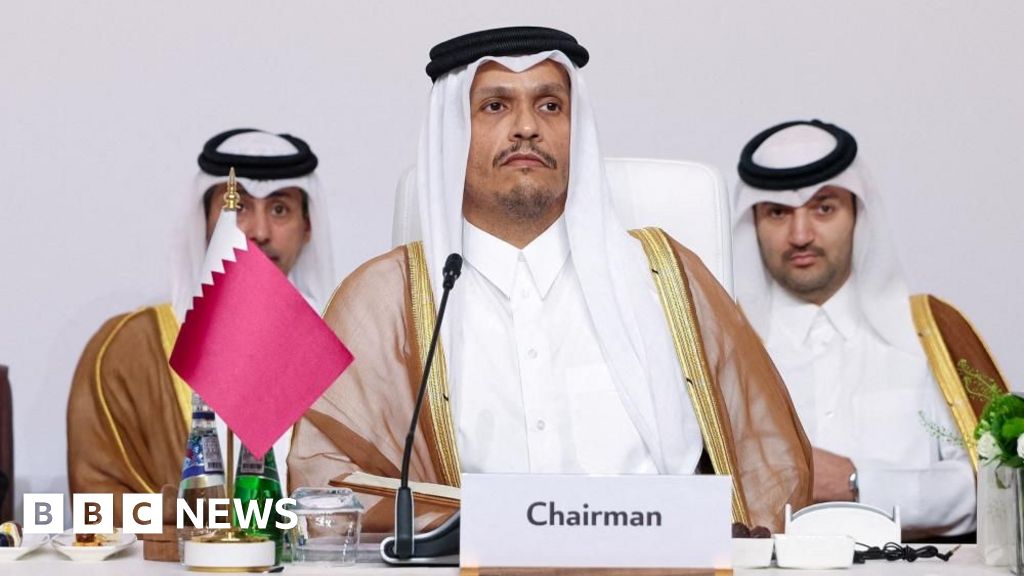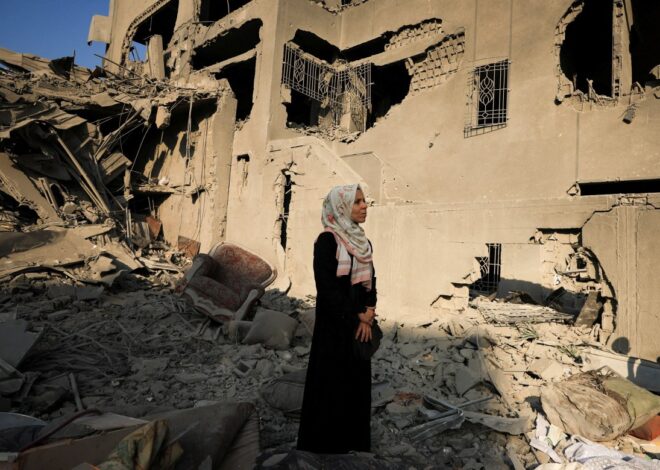
Qatar hosts Arab-Islamic emergency summit over Israeli strike on Doha

Qatar Hosts Arab-Islamic Emergency Summit Following Israeli Air Strike on Hamas Leaders
In a significant diplomatic response to recent military actions, Qatar is currently hosting an emergency summit of Arab and Islamic nations. This meeting has been convened in the wake of an Israeli air strike that targeted Hamas leaders in Doha, the capital of Qatar, last week. The incident has intensified regional tensions and prompted urgent discussions among member states.
Context of the Summit
The emergency summit comes in the aftermath of a controversial Israeli strike that has drawn widespread condemnation. A draft resolution, which was reviewed by the Reuters news agency, characterizes Israel’s actions as “hostile acts,” further describing them as acts of genocide, ethnic cleansing, and starvation. The resolution warns that such actions jeopardize the “prospects of peace and coexistence” in the region. In contrast, Israel has firmly rejected these allegations, asserting that its military actions are necessary for national security.
Calls for Accountability
During the summit, Qatari Prime Minister Mohammed bin Abdulrahman bin Jassim al-Thani emphasized the need for the international community to address what he termed “double standards” in the application of justice. He called for accountability measures against Israel for its military actions. His remarks reflect a growing frustration among Arab and Islamic nations regarding perceived inequities in how international law is applied in the context of the Israeli-Palestinian conflict.
U.S. Position and Reactions
The situation has also drawn attention from the United States. President Donald Trump acknowledged Qatar as a “very great ally” while cautioning that military actions must be approached with care. This sentiment was echoed by U.S. Secretary of State Marco Rubio, who, prior to his departure for Israel, indicated that Trump was dissatisfied with the manner in which the recent strike in Qatar was conducted. Rubio’s upcoming meetings with Israeli leaders are expected to focus on the ongoing war in Gaza and other pressing issues affecting the Middle East.
UN Security Council Response
The Israeli air strike has not only sparked outrage in the Arab world but has also been condemned by the United Nations Security Council. In a statement, the Council members highlighted the importance of de-escalation in the region and expressed solidarity with Qatar. This international condemnation underscores the gravity of the situation and the potential for further escalation if diplomatic efforts fail.
Israeli Justification for the Strike
In defense of its actions, Israeli President Isaac Herzog stated that the air strike was necessary to eliminate certain individuals who were perceived as obstacles to peace negotiations. He emphasized that the strike was a strategic decision aimed at advancing the possibility of a ceasefire in the ongoing conflict. However, this justification has not mitigated the backlash from Qatar and other nations.
Impact on Hamas and Casualties
The Israeli strike on September 9 reportedly resulted in the deaths of five members of Hamas, including the son of Khalil al-Hayya, the group’s chief negotiator. Additionally, a Qatari security officer lost his life in the attack. Hamas has confirmed that its negotiating team survived the strike, but the loss of key personnel has raised concerns about the future of diplomatic efforts to resolve the ongoing conflict.
Qatar’s Role as a Mediator
Qatar has long positioned itself as a mediator in the Israeli-Palestinian conflict, facilitating indirect negotiations between Hamas and Israel. The country has hosted the Hamas political bureau since 2012 and maintains a close alliance with the United States, which includes hosting a significant American airbase near Doha. This strategic role underscores Qatar’s influence in regional diplomacy, although the recent air strike has placed its diplomatic efforts under severe strain.
Conclusion
The ongoing emergency summit in Qatar reflects the heightened tensions resulting from Israel’s air strike on Hamas leaders. As regional leaders convene to address the implications of this incident, the international community watches closely, aware that the outcomes of these discussions could significantly impact the trajectory of peace efforts in the Middle East. The situation remains fluid, and the potential for further escalation looms as both sides prepare for the next steps in this complex geopolitical landscape.
Key Facts
– Qatar is hosting an emergency summit of Arab and Islamic states in response to an Israeli air strike on Hamas leaders in Doha.
– A draft resolution condemns Israel’s actions as genocide and ethnic cleansing, threatening peace prospects.
– Qatari Prime Minister Mohammed bin Abdulrahman bin Jassim al-Thani calls for international accountability against Israel.
– The UN Security Council has condemned the Israeli strike, emphasizing the need for de-escalation.
– Five Hamas members, including a key negotiator’s son, were killed in the air strike, along with a Qatari security officer.
– Qatar has been a mediator in the Israeli-Palestinian conflict and is a close ally of the United States.
Source: www.bbc.com


